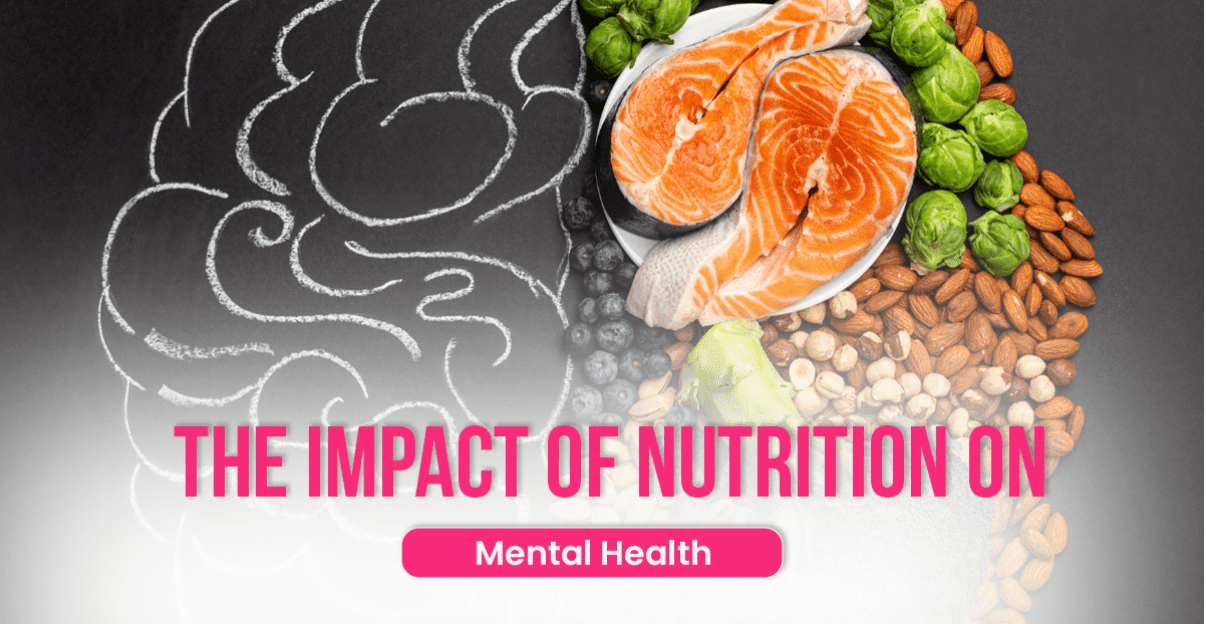Introduction
As mental health awareness grows, the impact of nutrition on mental health is becoming increasingly clear. Our dietary choices can significantly influence mood, cognitive function, and emotional well-being. By understanding the connection between food and mental health, we can adopt a mental health diet that promotes better emotional resilience and overall wellness. At Q-Slim, we’re here to guide you in making informed nutritional choices that nourish both your body and mind.
1. Understanding the Gut-Brain Connection
The gut-brain connection is a fascinating and complex relationship that underscores how our digestive system influences our mental health. The gut is often referred to as the “second brain,” housing a vast network of neurons and a diverse microbiome that plays a crucial role in producing neurotransmitters. For instance, about 90% of serotonin—the neurotransmitter that contributes to feelings of well-being and happiness—is produced in the gut.
Research shows that a healthy gut microbiome can improve mood, reduce anxiety, and even enhance cognitive function. The gut and brain communicate bi-directionally through the vagus nerve, allowing changes in gut health to affect brain activity and vice versa. This connection suggests that dietary choices impacting gut health can also affect mental health, making it vital to consume a balanced diet rich in fibre, probiotics, and prebiotics to support a healthy gut microbiome.
2. Key Nutrients for Brain Health
Several key nutrients are particularly beneficial for brain health and mental well-being. Here are some of the most crucial:
- Omega-3 Fatty Acids: Found in fatty fish like salmon, walnuts, and flaxseeds, omega-3 fatty acids are essential for brain function. They help reduce inflammation and have been linked to lower rates of depression and anxiety. Studies have shown that individuals with higher omega-3 levels often report improved mood and cognitive performance.
- B Vitamins: Vitamins B6, B12, and folate play significant roles in brain health. They are involved in neurotransmitter synthesis, which is crucial for mood regulation. A deficiency in these vitamins has been associated with increased rates of depression and anxiety. Foods rich in B vitamins include whole grains, leafy greens, eggs, and dairy products.
- Antioxidants: Foods high in antioxidants, such as berries, dark chocolate, and green tea, can protect the brain from oxidative stress and inflammation, which are linked to cognitive decline and mood disorders. Antioxidants help neutralise free radicals, reducing the risk of neurodegenerative diseases and supporting overall mental health.
- Magnesium: This mineral is crucial for nerve function and has been shown to help alleviate symptoms of depression and anxiety. Incorporating magnesium-rich foods such as nuts, seeds, whole grains, and leafy greens can help support mental well-being.
3. Nutrition Strategies for Managing Stress
Adopting specific nutrition strategies can be an effective way to manage stress and enhance mental health. Here are some practical tips:
- Balanced Meals: Focus on creating balanced meals that include protein, healthy fats, and complex carbohydrates. This combination stabilises blood sugar levels, which can help prevent mood swings and irritability. For example, a meal featuring grilled chicken, quinoa, and steamed vegetables provides sustained energy and essential nutrients.
- Regular Eating Schedule: Eating regularly throughout the day can help maintain energy levels and stabilise mood. Avoid skipping meals, as this can lead to irritability and low energy. Aim for three balanced meals and healthy snacks to keep your blood sugar stable.
- Hydration: Staying hydrated is essential for overall health and cognitive function. Dehydration can lead to fatigue and poor concentration. Aim for at least 8 glasses of water a day, and consider herbal teas or water-rich fruits and vegetables as additional sources of hydration.
- Incorporate Fermented Foods: Foods like yoghourt, kefir, sauerkraut, and kimchi are rich in probiotics, which can enhance gut health and, consequently, mental well-being. These foods support a healthy gut microbiome, potentially improving mood and reducing anxiety.
4. Mindful Eating and Mental Health
Mindful eating is an approach that encourages individuals to focus on their food experiences and cultivate a greater awareness of their eating habits. This practice can enhance mental health in several ways:
- Enhanced Awareness: By paying attention to what you eat and how it affects your body, you can develop a more positive relationship with food. This awareness helps individuals identify emotional eating triggers and make healthier choices.
- Reduced Stress: Mindful eating can serve as a form of meditation, reducing stress and promoting relaxation. Taking the time to savor each bite allows for a more enjoyable eating experience, fostering gratitude and contentment.
- Better Digestion: Slowing down while eating can improve digestion and nutrient absorption, further supporting overall health. This practice allows the body to signal fullness more effectively, reducing the likelihood of overeating.
- Emotional Connection: Mindful eating encourages individuals to reflect on their food choices and how they relate to their emotional state. By acknowledging feelings and making intentional choices, people can address the underlying issues related to their eating habits.
5. Case Studies and Research
Several studies support the impact of nutrition on mental health. A 2020 study published in Nutrients found that individuals who adhered to a Mediterranean diet, rich in fruits, vegetables, whole grains, fish, and healthy fats, reported lower levels of depression and anxiety.
Another study from the Journal of Psychiatric Research indicated that supplementing with omega-3 fatty acids could reduce symptoms of major depressive disorder. These findings highlight the importance of a well-rounded diet in maintaining mental health.
(REF: Mediterranean diet, fish intake, tied to lower depression risk in women)
Conclusion
The connection between nutrition and mental health is undeniable. By understanding how specific nutrients impact our brain and mood, we can make informed dietary choices that support our mental well-being. Incorporating a mental health diet rich in essential nutrients can be a powerful tool in enhancing mental health. At Q-Slim, we encourage you to explore the benefits of a balanced diet and mindful eating as part of your mental health journey. For personalised guidance tailored to your needs, consult Nutritionist Pallavi Srivastava today!


